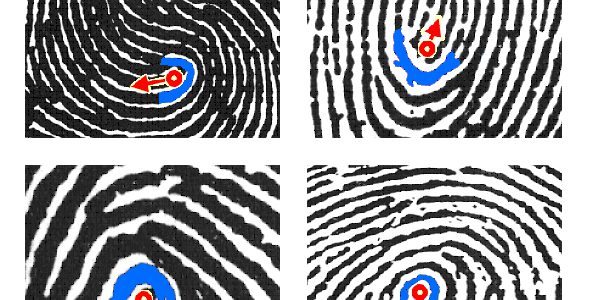Climate change metaphors: Crimes, detectives and fingerprints
October 27, 2018
For quite a few years I have written about metaphors in climate change, such as the metaphors of the greenhouse and the footprint. There is one metaphor I overlooked, and that is the one of the ‘fingerprint’. While the carbon footprint metaphor was used in order to get people to act on climate change, making them …
Cars and cancer: Metaphorical musings on the occasion of the Nobel Prize in Physiology or Medicine
October 5, 2018
Metaphors are weird. They are crucial for the expansion of human knowledge. However, they don’t really impart knowledge. They only tell a story. And that story can only be understood by people who already have some knowledge. When I say ‘life is a journey’, I expect people to understand that metaphor, as people generally know …
Epigenetics: Grappling with definitions
August 31, 2018
Definitions of epigenetics are notoriously slippery. This does not seem to hamper basic research. But it might hamper public understanding. The words ‘epigenetics’ and ‘epigenetic’ have undergone quite substantial changes in meaning over time, leading up to a meaning which is now popular but open to misinterpretation. This history and increasing confusion has been charted, …
Groundhog day in the hothouse
August 11, 2018
On 6 August Will Steffen and others published a paper entitled “Trajectories of the Earth System in the Anthropocene”. The paper explores “the risk that self-reinforcing feedbacks could push the Earth System toward a planetary threshold that, if crossed, could prevent stabilization of the climate at intermediate temperature rises and cause continued warming on a …
Synthetic biology: Modelling joys and fears brick by brick
June 22, 2018
Carmen McLeod, Stevienna de Saille and I recently published an article in which we used findings from a LEGO® SERIOUS PLAY® workshop to show that scientists’ (synthetic biologists’) views of risk and responsibility are much more ‘societal’ than one might expect. This means, involving them in a new form of science governance (RRI), which itself involves new …
Bacteria, metaphors and responsible language use
June 1, 2018
A lot has been written about the war on bacteria, especially in the context of antimicrobial resistance. Some articles reflect on the metaphor of war in medicine and in microbiology more generally, others deal with the metaphors of bacterial communication and communities. A few papers look more closely at the way bacteria are anthropomorphised in the …
Data harvesting: A metaphor ripe for scrutiny
April 27, 2018
At the end of March news of a data scandal broke – you all know which one. As Steven Poole in The Guardian wrote: “The political data firm Cambridge Analytica has been accused of unauthorised ‘data harvesting’ from millions of Facebook accounts. This handily avoids allegations of ‘theft’ or even just ‘mining’”. Data harvesting is not only …
In the shadow of Frankenstein: Mapping and manipulating genes and genomes
February 16, 2018
I was starting to prepare a talk for Pint of Science in May, for “The Body” strand, which this year here in Nottingham focuses on regenerative medicine and genetic engineering. It’s entitled “GMYou”. I know, it’s a long way off, but they needed a title and so I began to muse. In the end I …
Catching a metaphor on the fly: ‘Greenfield genome design’
February 9, 2018
A week ago, something interesting washed up in my twitter stream, something a metaphor collector like me had to pick up and inspect. Andrew Hanson, an expert in metabolic engineering working at the University Florida, tweeted: “Excellent short 2016 piece from @claudiaevickers on #synbio platforms & the future of the microbial cell factory industry. Coins …
Framing cloning: Dolly and the monkeys
January 29, 2018
In 1999, three years after Dolly the sheep was born, we published an article on the way that cloning was then framed in the public sphere (see also Holliman, 2004). The cloning of two macaque monkeys by Chinese researchers (Cell, 2018), more than two decades after the cloning of Dolly might be a good opportunity …
Subscribe by email
About this blog
This blog promotes discussion of topics related to the research programme 'Making Science Public: Challenges and Opportunities'. Our purpose is not to 'make science public'. Instead, we want to study the opportunities that have emerged for science to be more openly practiced and debated, but also the challenges posed by making science public or by promoting the making public of science as a solution to a variety of problems in society and in politics.
This blog will report on these and other issues related to the Leverhulme funded research programme: Making Science Public: Challenges and Opportunities
Useful links
Recent Posts
- Climate change and climate discourse: A dual disintegration
- Erving Goffman: Memories, method and metaphors
- Participation at the core: AI, ELSI and community engagement
- Understanding computational hermeneutics: Making meaning between the past and the present
- AI winter and AI bubble: Historical and metaphorical reflections
 MSP bookmarks
MSP bookmarks
- Twitter May 8, 2017
- Social innovations in Europe #RRI November 3, 2015
- Harvey Graff, the undisciplinarian September 20, 2015
- Replacing Pesticides With Genetics August 31, 2015
- Addressing hazardous chemicals in the circular economy August 25, 2015
Categories
- antibiotics
- anticipatory governance
- artifical intelligence
- big data
- biotechnology
- citizen science
- Climate Change
- Climate Politics
- co-production
- coronavirus
- Creationism
- Definition of Science
- designer babies
- disease
- disease
- engineering
- epigenetics
- Food Security
- Food sovereignty
- gene drive
- genomics
- GM Food
- GMOs
- history of science
- Hype
- images and visualisations
- imaginaries
- Immigration
- Impact
- infectious diseases
- innovation
- interdisciplinarity
- Knowledge Society
- Language
- Markets
- Metaphors
- microbiome
- neoliberalism
- Neuroscience
- open access
- Personal Reflection
- Politics
- Public education
- public engagement with science
- public needs
- public participation
- public policy
- public service
- publics
- regulatory science
- Religion
- Republican Party
- research impact
- responsible innovation
- responsive research
- Richard Dawkins
- risk
- Scepticism
- Science
- Science and Government
- science and politics
- Science and Songs
- science communication
- Science Communication
- Science Fiction
- Science Policy
- Social science
- sociology
- space
- space exploration
- synthetic biology
- transparency
- Trust
- Uncategorized
- Uncertainty
- visualisation
- wonder










